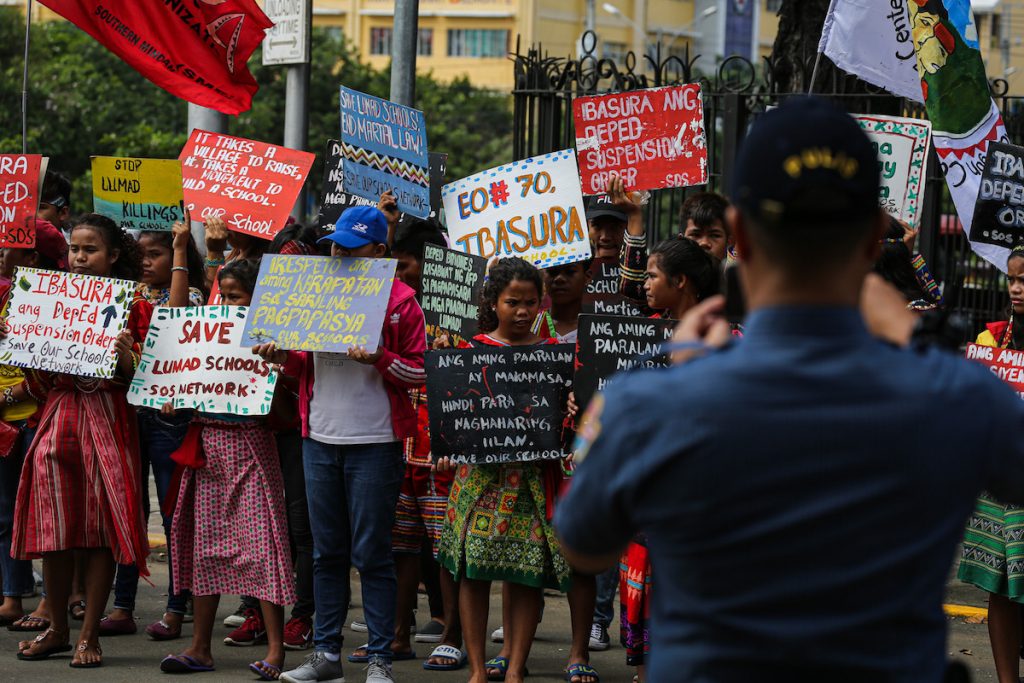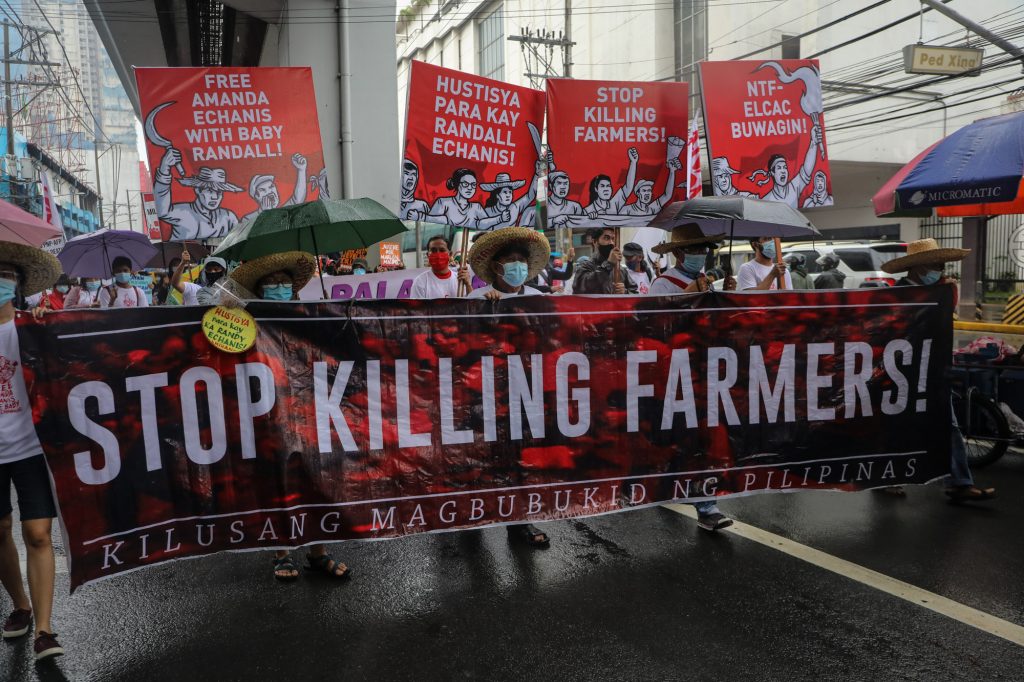
Two retired Catholic bishops said Filipinos must have the courage to speak against evil in society following the result of a new survey that says 65 percent of adult Filipinos think it is dangerous to publish critical statements about the administration of President Rodrigo Duterte.
“Filipinos should learn a lesson,” said Bishop Arturo Bastes, retired prelate of Sorsogon. “Not to criticize the government can lead to dictatorship,” he said.
“We must have the courage to expose what is evil in society,” added the bishop as a reaction to the result of a Social Weather Stations (SWS) survey.
“We are a democracy. In our system power emanates from the people. Those who govern are at the service of the people. People have the right to criticize the government if it fails to do its duty of giving good service to the country,” said Bishop Bastes.
“Let our democratic system work,” he said, adding that “65 percent of adults surveyed should be taught that our democratic government gives us freedom of speech to express the wrong doing of our government.”
Bishop Teodoro Bacani Jr., retired bishop of the Diocese of Novaliches, said the result of the survey is a bad reflection on government leaders.
“What a bad reflection this survey report is on our government leaders. We have a bullied people led by a bully president,” he said.
“We need leaders whom we can follow with respect and admiration. Only the people can bring this about with God’s grace. May God give us the leaders we need in these trying times,”said Bishop Bacani.

Majority of Filipinos think it is dangerous to publish critical statements about the Duterte administration, results of a survey done by SWS in November revealed.
The survey, which was released on Friday, March 19, said 65 percent of the respondents agreed it was dangerous to publish or broadcast anything critical of the administration, even if it is the truth.
Of those who were polled, 29 percent strongly agreed with the statement, while 37 percent said they somewhat agreed.
Only 16 percent disagreed with the statement, while 18 percent were undecided.
The difference between those who agreed and disagreed on the dangers of publishing criticisms against the Duterte administration results in a “strong” net agreement score of +49.
This is a sharp increase from the “moderate” net agreement score of +21 in July 2020, when 51 percent of adult Filipinos said it was dangerous to be critical of the administration.
Despite the perceived danger of being critical, 65 percent believed that they could say anything they want, even if it is against the administration.
Of those who were polled, 31 percent strongly agreed with the statement, 34 percent said they somewhat agreed, while 19 percent disagreed, and 16 percent were undecided.
This translates to a strong net agreement score of +46, up by 5 points from the strong +41 (59 percent agree, 18 percent disagree) in June 2019.
SWS said this was the strongest net agreement score on free speech since January 2001, when net agreement hit +48.
It said the net personal freedom to speak freely increased in Visayas and Mindanao but fell in Metro Manila.

The statement “I can say anything I want, openly and without fear, even if it is against the administration” was first tested by the SWS in July 1985, during the Marcos regime, and found only 33 percent who agreed and 29 percent who disagreed for a record-low net agreement of a “neutral” +3.
Net agreement rose to a strong +39 in May 1986 and reached its all-time high of a very strong +63 in March 1987.
Freedom of speech has been gauged 46 times from 1985 to the present. Its net score averaged +33 during the administration of former president Corazon Aquino, +38 in the time of former president Fidel Ramos, +41 in the time of former president Joseph Estrada, +34 in the time of President Gloria Arroyo, and +32 in the time of President Benigno Aquino.
In the six times it was surveyed in the time of President Duterte, it ranged from a moderate +23 to a strong +49.
The SWS poll had sampling error margins of ±2.5 percent for national percentages, ±4 percent for Balance Luzon, and ±6 percent for Metro Manila, the Visayas and Mindanao.
It was conducted on the heels of government forces ramping up their attacks on critics by accusing them baselessly of being communist rebels.
Source: Licas Philippines
0 Comments